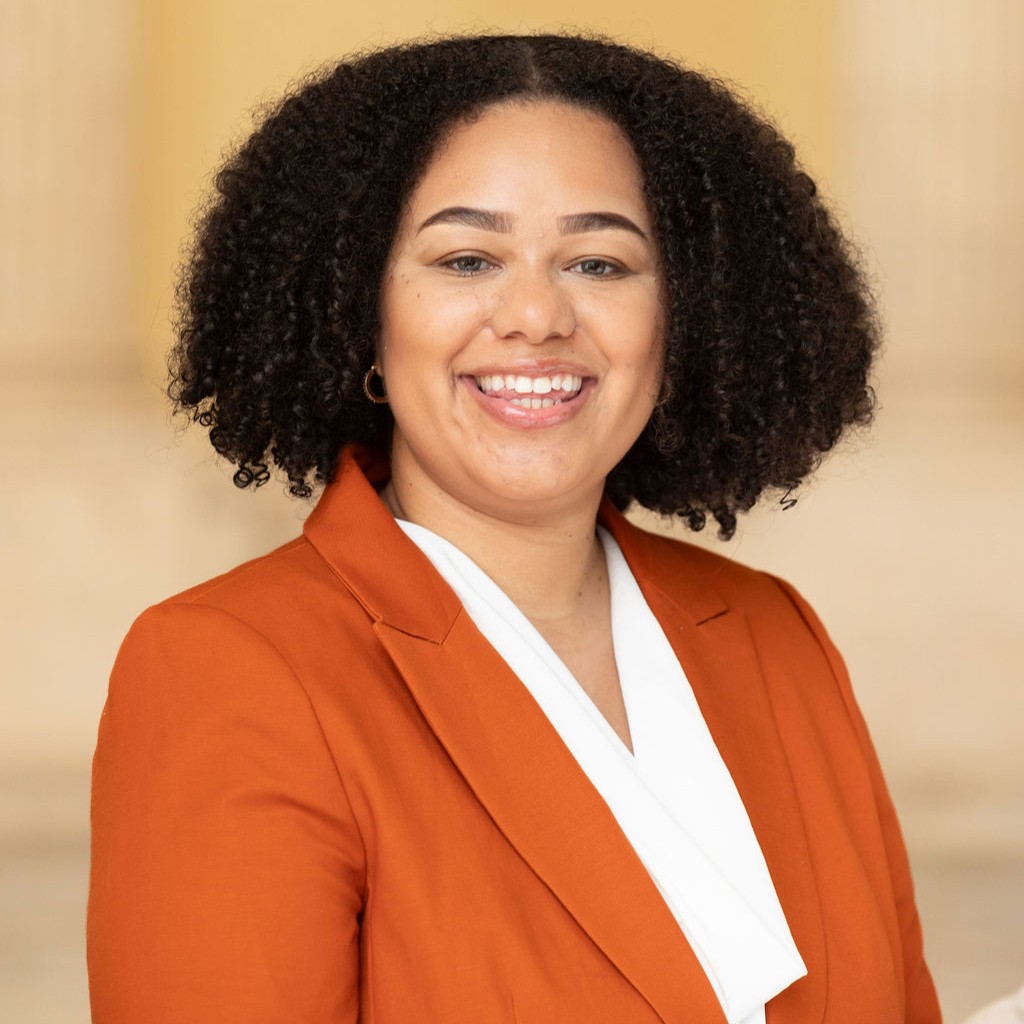
PlacementRep. Shontel Brown (OH-11)
Fellowship Presented By
Elise Elizondo
Congressional Fellow
She/her/hers
Area of Discipline: Cannabis
Elise Elizondo, a proud Afro-Cubana, was born and raised in South Florida in a bilingual household. Elise describes herself as diverse, open-minded, creative and altruistic. She graduated from The Pennsylvania State University, majoring in Plant Sciences with minors in Agronomy, Entomology, International Agriculture and Music Performance. She received her Master’s of Science in International Agricultural Development from the University of California-Davis.
Elise is new to the political space. She comes from a stem-based background, with lab and research experience. Elise was a WISER recipient as a freshman at Penn State. Through that program, she worked in the Kaye Biogeochemistry Lab and presented her research, Nitrogen Input from Cover Crops Affects Protein Content in Corn Grain, at the Gamma Sigma Delta Research expo. Elise continued gaining research experience through a summer Research Experience for Undergraduates program (REU) at the University of Nebraska-Lincoln. She published Soil Microbial Communities under Cover Crops on the university’s Cropwatch website and presented a poster at the American Society of Agronomy conference. In her final year at Penn State, Elise performed computational analysis to develop gene trees in the Renner Entomology Lab. After graduating, she entered the non-profit space working at The Land Institute in Salina, Kansas. This organization specializes in studying perennial grains. So, she gained experience analyzing mycorrhizal fungi, performing bioassays, phenotyping Sainfoin, threshing Kernza, and assisted in implementing an integrated pest management plan for their five greenhouses. Throughout her experiences, Elise wanted to connect her identity to her work. She saw a gap that was not addressed in her lab spaces.
Elise decided to foster her interest in understanding how her identity plays a role in her research by studying how racial discrimination impacts food insecurity in her master’s degree. She taught two undergraduate classes, one of which explored agriculture in the historical context of Black California. Elise studied race and agriculture in her capstone, Evaluating the Feasibility of GenderUp for Vivendas Leon.